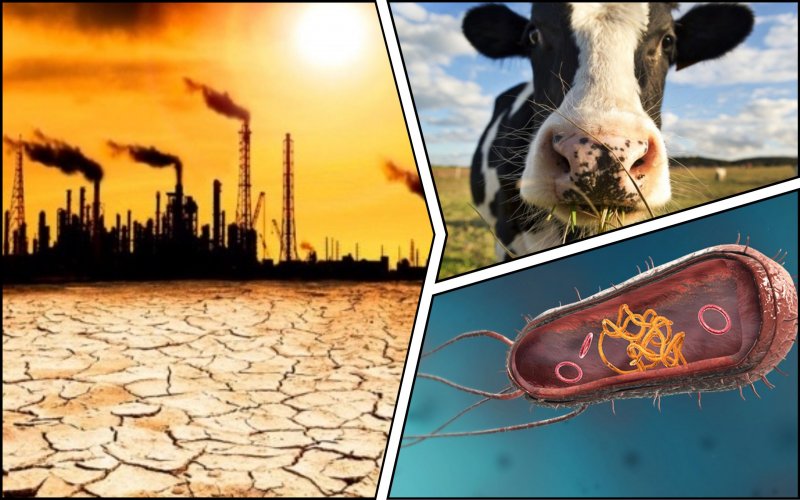A group of researchers from the University of California, Long Beach, has developed a method for removing the powerful greenhouse gas methane from the atmosphere using methanotrophic bacteria that feed on it.
This will help slow global warming, as methane has more than 85 times the heat capacity of carbon dioxide in the first 20 years, reports The Guardian.
It is noted that the sources of methane emissions are:
- natural gas and oil production;
- industry;
- agriculture is the largest source of emissions due to livestock manure and gastrointestinal emissions;
- land use;
- waste disposal, in particular the release of landfill gas.
In the material it was said that usually methanotrophic bacteria need high methane content ( 5,000 – 10,000 parts per million). Its concentration in the atmosphere reaches about 1.9 parts per million. But some areas, such as landfills, rice fields and oil wells, emit higher concentrations of about 500 parts per million.
Researcher Mary Lidstrom explained that a specific strain of such bacteria can effectively remove methane, even if it is present in smaller amounts.
"Bacteria that rapidly absorb methane in higher concentrations around cattle herds and the like could make a huge contribution to reducing methane emissions, particularly from tropical agriculture," said Euan Nisbet, professor of earth sciences at Royal Holloway University of London.
"The biggest hurdle to implementation right now is technical: we need to scale up the methane scrubber by a factor of 20. If we can achieve that, then the biggest barriers will be investment capital and public acceptance. We think we could be testing field pilots within three- four years, and then expansion will depend on investment capital and commercialization," Lidstrom said.
Methane content in the atmosphere has been increasing rapidly over the past 15 years, reaching record levels, and currently accounts for at least 30% of total global warming, it said. In 2021, several of the world's largest economies agreed at Cop26 to work together to urgently reduce methane levels. However, emissions continue to rise.
Mary Ann Bruns, a professor of soil microbiology at Pennsylvania State University, emphasized that if human survival depends on reducing atmospheric methane levels now, cost may be a lower priority in resource allocation. After all, global warming will become even more powerful in the coming years.
The article emphasized that currently most of the proposed solutions for reducing methane emissions are aimed at reducing emissions, but this is not always possible. The researchers stress that both methane removal and emission reduction strategies are needed to meet climate goals.
It is noted that Lidstrom's team's technology, unlike other bacteria, does not emit nitrous oxide (N2O), which has 10 times more global warming potential than methane.
It is estimated that global warming could be reduced by 0.21C to 0.22C by removing 0.3-1 billion tonnes of methane. This will make a significant contribution to the fight against climate change, especially in combination with other climate strategies.
As EcoPolitics previously reported, despite the Global pledge to reduce methane emissions at the Glasgow climate conference emissions are increasing faster than the recovery of oil, gas and coal production after the abatement of the COVID-19 pandemic.





